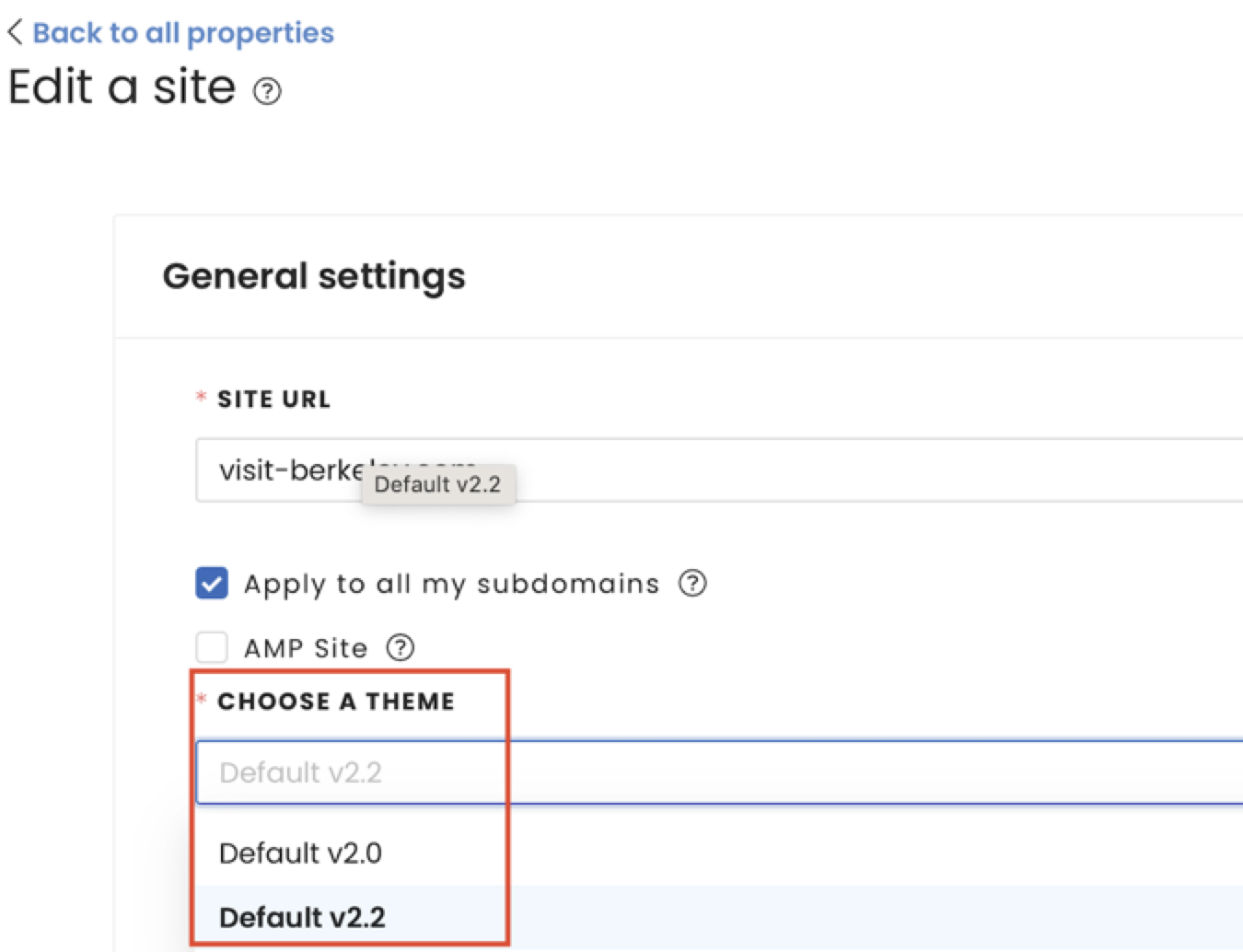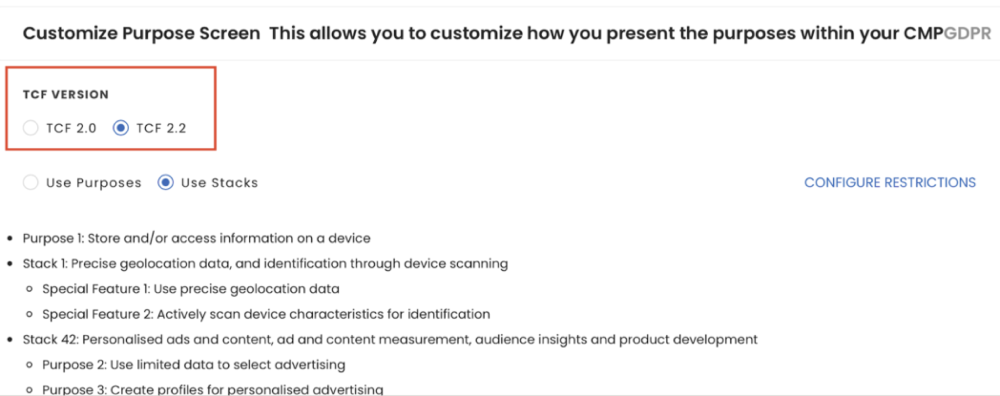1st January 2024
The latest update involves a TCF version to be updated from TCF V2.0 to TCFV2.2. This is a crucial enhancement to ensure compliance and optimal performance.
Follow any of the methods below to update the Theme from TCF V2.0 to V2.2.



Released on 29th February 2024 (For more information, see Google Basic Consent with InMobi CMP)
Google Consent Mode is a functionality empowering web and app developers to customize the operation of Google tags and app SDKs according to users' consent preferences. InMobi CMP introduces a mechanism facilitating the storage and transmission of user consent to Google, tied explicitly to various data processing activities carried out by Google's products. Publishers can activate Google basic consent through the Google template or the universal tag, which encompasses gtag-related codes. This offers publishers a flexible approach to implementing and managing user consent seamlessly.
Follow the instructions below to implement Google Basic Consent.
Adapt to privacy and regulatory changes with consent mode
30 March 2024
In response to recent iOS platform updates, InMobi is introducing functionality to comply with Apple's privacy manifest requirements. Starting from spring 2024, certain API usage on iOS necessitates declaration of the purpose within a designated "privacy manifest." Failure to comply will result in notifications from Apple to the respective app developers.
Privacy updates for App Store submissions
In response to the deprecation of the US privacy string format by IAB on April 30 (source), InMobi CMP is enhancing its capabilities to include support for US state laws (California, Connecticut, Colorado, Virginia, Utah) and the National MSPA framework through the Global Privacy Platform (GPP). Following the launch, it is strongly advised to promptly transition your properties to the GPP format from the US privacy format to mitigate the risks of non-compliance with IAB standards.
Mid of June
InMobi CMP will be extending support for DPDPA in the Indian marketplace. The DPDPA 2023’s primary focus is handling digital personal data within India, including online and offline data. If processing includes providing Indians with products or services or profiling them, it also extends its authority to process personal data outside India. The bill seeks to create a safer and more secure digital environment for all stakeholders involved.
By installing this SDK update, you agree that your Children Privacy Compliance setting remains accurate or that you will update that setting, whenever there is a change in your app's audience. You may update the app's Children Privacy Compliance settings at https://publisher.inmobi.com/my-inventory/app-and-placements.